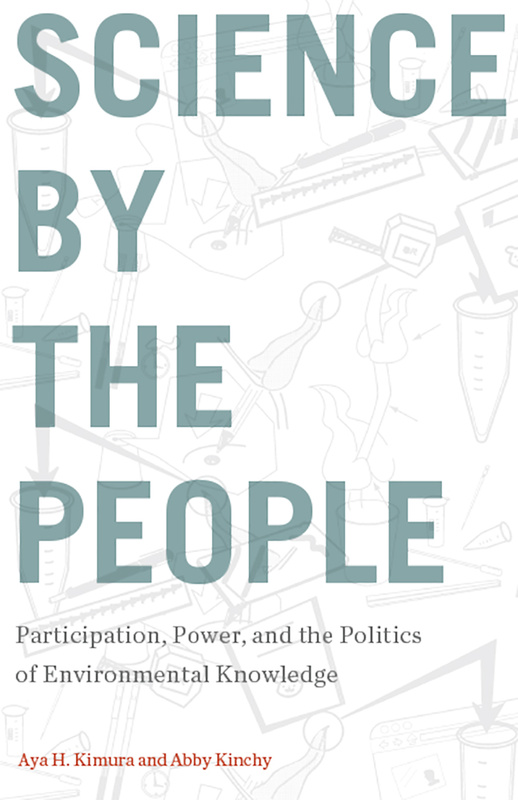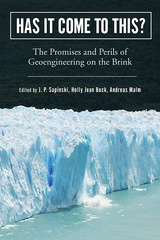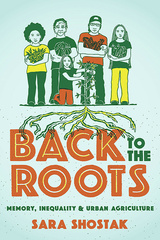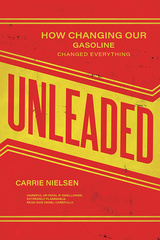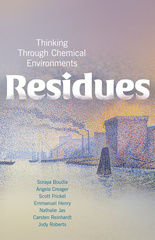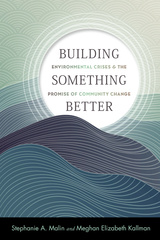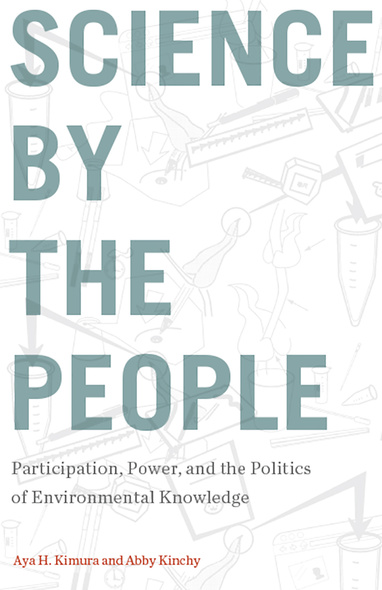
240 pages, 5 1/2 x 8 1/2
11 b-w illustrations
Paperback
Release Date:13 Sep 2019
ISBN:9780813595078
Hardcover
Release Date:13 Sep 2019
ISBN:9780813595085
Science by the People
Participation, Power, and the Politics of Environmental Knowledge
By Aya H. Kimura and Abby Kinchy
SERIES:
Nature, Society, and Culture
Rutgers University Press
Longlisted for the Fleck Prize from the Society for Social Studies of Science (4S)
Citizen science—research involving nonprofessionals in the research process—has attracted both strong enthusiasts and detractors. Many environmental professionals, activists, and scholars consider citizen science part of their toolkit for addressing environmental challenges. Critics, however, contend that it represents a corporate takeover of scientific priorities. In this timely book, two sociologists move beyond this binary debate by analyzing the tensions and dilemmas that citizen science projects commonly face. Key lessons are drawn from case studies where citizen scientists have investigated the impact of shale oil and gas, nuclear power, and genetically engineered crops. These studies show that diverse citizen science projects face shared dilemmas relating to austerity pressures, presumed boundaries between science and activism, and difficulties moving between scales of environmental problems. By unpacking the politics of citizen science, this book aims to help people negotiate a complex political landscape and choose paths moving toward social change and environmental sustainability.
Citizen science—research involving nonprofessionals in the research process—has attracted both strong enthusiasts and detractors. Many environmental professionals, activists, and scholars consider citizen science part of their toolkit for addressing environmental challenges. Critics, however, contend that it represents a corporate takeover of scientific priorities. In this timely book, two sociologists move beyond this binary debate by analyzing the tensions and dilemmas that citizen science projects commonly face. Key lessons are drawn from case studies where citizen scientists have investigated the impact of shale oil and gas, nuclear power, and genetically engineered crops. These studies show that diverse citizen science projects face shared dilemmas relating to austerity pressures, presumed boundaries between science and activism, and difficulties moving between scales of environmental problems. By unpacking the politics of citizen science, this book aims to help people negotiate a complex political landscape and choose paths moving toward social change and environmental sustainability.
With cutbacks in government funding for regulatory science and roll-backs on regulations, there is going to be growing pressure for citizens to fill in the void with research and documentation. This book presents a much-needed overview of the dilemmas faced by citizen science groups. With detailed case studies on fracking, genetically modified foods, and nuclear radiation contamination, The Politics of Citizen Science will prove valuable for students, researchers, and citizen scientists.’
Departing from the usual hype around citizen science, Science by the People takes a hard look at how science works--or doesn't--for citizens trying to improve their environments. Essential reading for scholars and practitioners alike.
'Meet RPI Professor at upcoming book signing' - interview with Abby Kincy' by Heather Kovar
https://cbs6albany.com/news/local/meet-rpi-professor-at-upcoming-book-signing
By unpacking the politics of citizen science, this book aims to help people negotiate a complex political landscape and choose paths moving toward social change and environmental sustainability.
While avoiding both cynicism and celebration, Kimura and Kinchy here suggest ways that citizen science can address dilemmas and meaningfully involve people who have been excluded from science.
The issues Kimura and Kinchy raise in their book, including volunteering, taking a stand, contextualizing data, and shifting scales encourage citizen scientists to think critically. Although their book raises difficult issues, these issues are presented in a way that is accessible to many.'
AYA H. KIMURA is a professor of sociology at University of Hawai`i-Manoa. She is the author of Radiation Brain Moms and Citizen Scientists: The Gender Politics of Food Contamination after Fukushima (Duke University Press, 2016).
ABBY KINCHY is an associate professor of Science and Technology Studies at Rensselaer Polytechnic Institute and the author of Seeds, Science, and Struggle: The Global Politics of Transgenic Crops (MIT Press, 2012).
ABBY KINCHY is an associate professor of Science and Technology Studies at Rensselaer Polytechnic Institute and the author of Seeds, Science, and Struggle: The Global Politics of Transgenic Crops (MIT Press, 2012).
Preface
1 Environmental Citizen Science: Virtues and Dilemmas
2 How is Environmental Citizen Science Political?
3 Investigating the Impacts of Fracking
4 Detecting Radiation
5 Tracking Genetically Engineered Cops
Conclusion: A Vision of Science by and for the People
Appendix: Resources for Getting Involved in Citizen Science
Notes
Bibliography
Index
About the Authors
1 Environmental Citizen Science: Virtues and Dilemmas
2 How is Environmental Citizen Science Political?
3 Investigating the Impacts of Fracking
4 Detecting Radiation
5 Tracking Genetically Engineered Cops
Conclusion: A Vision of Science by and for the People
Appendix: Resources for Getting Involved in Citizen Science
Notes
Bibliography
Index
About the Authors

